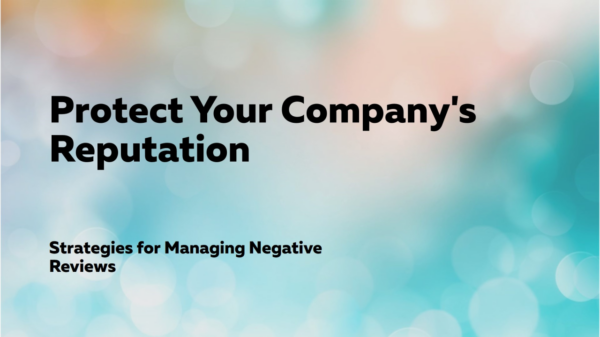Introduction
Overview of Business Credit Cards
Definition and Purpose of Business Credit Cards
A business credit card is a financial tool specifically designed for use by businesses rather than individuals. These cards provide a revolving line of credit that allows business owners to manage expenses, make purchases, and streamline cash flow. Unlike personal credit cards, business credit cards help separate personal and business finances, which is crucial for accurate bookkeeping and tax preparation.
- Key Features:
- Higher credit limits compared to personal cards.
- Ability to issue additional cards for employees.
- Specialized rewards and perks tailored for business spending.

Image from First Citizens Bank
Benefits of Business Credit Cards
Business credit cards offer several advantages that can enhance financial management for entrepreneurs:
- Cash Flow Management: They provide a buffer during times when cash flow is tight, allowing businesses to cover expenses while awaiting customer payments.
- Rewards Programs: Many business credit cards come with rewards such as cash back or travel points, which can be beneficial for companies with significant travel or purchasing needs.
- Expense Tracking: Business credit cards often provide detailed statements that simplify tracking expenses, making it easier to categorize spending for accounting purposes.
Importance of Understanding Hidden Costs
While business credit cards can be incredibly useful, it’s essential for entrepreneurs to understand the hidden costs associated with them. Many business owners may overlook these fees, which can significantly impact their overall financial health.
- Introduction to Hidden Costs:
- Common hidden costs include annual fees, interest rates, late payment penalties, and foreign transaction fees.
- Understanding these costs is crucial for making informed financial decisions that align with your business goals.
Why Awareness Matters
Being aware of the hidden costs associated with business credit cards can help entrepreneurs avoid unexpected financial burdens. For example, failing to account for high-interest rates on unpaid balances can lead to mounting debt over time. By understanding these potential pitfalls, business owners can better manage their finances and choose the right credit products that truly benefit their operations.In this article, we will explore the various hidden costs associated with business credit cards and provide insights into how entrepreneurs can navigate these challenges effectively. Let’s dive deeper into the often-overlooked fees that could affect your bottom line!

Image from FaithFi
Hidden Costs of Business Credit Cards
Annual Fees
Explanation of Typical Annual Fees for Business Credit Cards
Annual fees for business credit cards can vary significantly based on the card’s features and benefits. While some cards offer no annual fee, others can charge upwards of $500. For instance, premium cards often come with higher fees but provide enhanced rewards and benefits that may justify the cost.
- Typical Fee Range:
- No Annual Fee: Many entry-level business credit cards offer no annual fee, making them attractive for startups.
- Moderate Fees: Cards with annual fees ranging from $50 to $150 typically offer decent rewards and perks.
- Premium Fees: High-end cards may charge $300 or more, often including extensive benefits such as travel rewards and concierge services.
Comparison of Fees Across Different Card Issuers and Types
When evaluating business credit cards, it’s essential to compare annual fees across various issuers. For example:
- Chase Ink Business Unlimited®: No annual fee with unlimited 1.5% cash back on all purchases.
- American Express® Business Platinum Card: Charges a $695 annual fee but offers substantial rewards and travel benefits.
- Capital One Spark Cash Select: No annual fee with a flat-rate cash back structure.
Tips for Evaluating Whether the Benefits Outweigh the Costs
To determine if a card’s annual fee is worth it, consider the following:
- Calculate Potential Rewards: Estimate how much you would earn in rewards based on your spending habits. If the rewards exceed the annual fee, it may be worth it.
- Assess Additional Benefits: Look at perks such as travel insurance, purchase protection, or expense management tools that could add value beyond just cash back.
- Read Reviews: Research user experiences to gauge whether the card delivers on its promises.
Interest Rates and APR
Overview of Average Interest Rates for Business Credit Cards
Interest rates for business credit cards typically range from 14% to 28%, depending on factors like creditworthiness and issuer policies. Higher rates are often associated with cards that offer extensive rewards or benefits.
- Variable APRs: Most business credit cards have variable APRs that can change based on market conditions. For example, a card might have an APR of 18.49%–24.49%.
Explanation of How Interest Rates Can Increase Due to Late Payments or Missed Payments
Missing payments can lead to increased interest rates. Many issuers apply a penalty APR that can significantly raise your rate after just one late payment.
- Penalty APRs: This can be as high as 29.99%, which substantially increases the cost of carrying a balance.
Discussion on Penalty APRs and Their Long-Term Financial Impact
Understanding penalty APRs is crucial for managing your business finances effectively. A higher interest rate can lead to:
- Increased monthly payments.
- Greater overall debt if balances are not paid in full.
- Long-term financial strain that could impact cash flow and profitability.
Late Payment Penalties
Description of Common Late Payment Fees
Late payment fees typically range from $39 to $50, depending on the card issuer. These fees are charged when payments are not received by the due date.
- Fee Variability: Some issuers may impose higher fees for repeated late payments within a certain timeframe.
Explanation of How Late Payments Can Affect Both Business and Personal Credit Scores
Late payments can negatively impact both business and personal credit scores, particularly if personal guarantees are involved.
- Credit Score Impact: A late payment can lower your score by several points, affecting your ability to secure future financing or favorable terms.
Strategies for Avoiding Late Payment Penalties
To avoid late payment penalties, consider these strategies:
- Set Up Automatic Payments: Automating payments ensures they are made on time, reducing the risk of oversight.
- Use Payment Reminders: Set calendar alerts or use apps to remind you of upcoming due dates.
- Regularly Review Statements: Monitoring your accounts helps catch discrepancies early, allowing you to address potential issues before they result in late payments.
Foreign Transaction Fees
Overview of Foreign Transaction Fees Typically Charged by Business Credit Cards
Foreign transaction fees generally range from 1% to 3% per transaction when using your card outside of the U.S. These fees can add up quickly for businesses that conduct international transactions.
- Impact on Travel Costs: For entrepreneurs who travel frequently or deal with overseas clients, these fees can significantly increase overall expenses.
Importance for Entrepreneurs Who Travel Internationally or Conduct Overseas Transactions
Understanding foreign transaction fees is crucial for businesses operating globally. These costs can affect budgeting and pricing strategies when dealing with international clients or suppliers.Recommendations for Selecting Cards with No Foreign Transaction Fees
To minimize costs while traveling internationally:
- Research No-Fee Options: Look for business credit cards that do not charge foreign transaction fees, such as certain offerings from Chase or Capital One.
- Evaluate Benefits Against Costs: Ensure that any potential benefits align with your international spending needs without incurring additional fees.
Cash Advance Fees
Explanation of Cash Advance Fees and Interest Rates Associated with Cash Withdrawals
Cash advances usually come with high fees—often around 3% to 5% of the amount withdrawn—and higher interest rates than standard purchases.
- Immediate Interest Accrual: Unlike regular purchases where you may have a grace period, interest on cash advances begins accruing immediately.
Discussion on the High Costs Associated with Using a Credit Card for Cash Advances
Using a credit card for cash advances can lead to significant financial strain due to:
- High-interest rates that compound quickly.
- Additional fees that make cash advances an expensive option compared to other forms of borrowing.
Alternatives to Consider Instead of Cash Advances
Instead of relying on cash advances, consider these alternatives:
- Business Line of Credit: A line of credit often offers lower interest rates and more flexible repayment terms.
- Short-Term Loans: Explore short-term financing options specifically designed for businesses needing quick capital without high costs associated with cash advances.
Additional Fees
Overview of Other Potential Fees
In addition to the aforementioned costs, business credit cards may incur various other fees:
- Balance Transfer Fees: Typically around 3% to 5% when transferring balances from one card to another.
- Returned Payment Fees: Usually between $25 and $40 if a payment cannot be processed due to insufficient funds.
- Account Maintenance Fees: Some issuers charge monthly maintenance fees if certain spending thresholds aren’t met.
Importance of Reading the Fine Print in Credit Card Agreements
Understanding all potential fees requires careful review of credit card agreements:
- Look for sections detailing all possible charges associated with using the card.
- Being informed helps you avoid surprises that could impact your financial planning.
By being aware of these hidden costs associated with business credit cards, entrepreneurs can make informed decisions that protect their financial health while maximizing the benefits these financial tools offer.

Graphic Designed by: Jenny Chen
The Long-Term Impact of Hidden Costs
Financial Health of the Business
How Hidden Costs Can Accumulate and Affect Overall Profitability
Hidden costs associated with business credit cards can significantly impact a company’s financial health over time. These costs, which may seem minor initially, can accumulate and lead to substantial expenses that affect profitability.
- Cumulative Effect of Fees: Annual fees, late payment penalties, and high-interest rates can add up quickly. For example, a business that pays an annual fee of $150, incurs a late payment penalty of $39 once a year, and carries a balance with an average APR of 20% could find itself paying hundreds more than anticipated.
- Impact on Cash Flow: Increased costs reduce cash flow available for other critical business operations. If a significant portion of revenue is allocated to servicing credit card debt, it limits funds for investments in growth or essential expenses.
Case Studies or Statistics Illustrating the Financial Burden Caused by These Costs
Research indicates that many small businesses underestimate the total cost of credit card debt. According to a study by the National Federation of Independent Business (NFIB), approximately 30% of small business owners reported that credit card debt negatively impacted their cash flow.
- Example Case Study: A small retail business that relied heavily on a business credit card for inventory purchases found itself in financial trouble after accumulating $15,000 in credit card debt. With an interest rate of 24%, the monthly interest alone was $300, significantly impacting their ability to reinvest in the business or cover operational costs.
Impact on Personal Finances
Discussion on How Business Credit Card Debts Can Affect Personal Credit Scores Due to Personal Guarantees
Many business credit cards require personal guarantees from the business owner. This means that if the business fails to repay its debts, the owner is personally liable.
- Personal Liability: When using a personal guarantee, any default on payments can directly affect the owner’s personal credit score. Late payments or high utilization ratios can lead to decreased credit scores, making it harder to secure personal loans or mortgages.
- Statistics on Credit Impact: According to NerdWallet, nearly 70% of business credit cards report payment activity to personal credit bureaus, meaning missed payments can harm both personal and business credit profiles.
Strategies for Managing Both Business and Personal Finances Effectively
To mitigate the risks associated with business credit card debts affecting personal finances, consider these strategies:
- Separate Accounts: Maintain separate bank accounts and credit cards for personal and business expenses. This helps clarify financial responsibilities and protects personal assets.
- Budgeting and Monitoring: Create a comprehensive budget that includes all potential hidden costs associated with your business credit cards. Regularly monitor spending to avoid overspending or accumulating unnecessary debt.
- Timely Payments: Implement automatic payments for your business credit cards to ensure bills are paid on time, reducing the risk of late fees and negative impacts on your credit score.
By understanding the long-term impact of hidden costs associated with business credit cards, entrepreneurs can make informed decisions that protect both their businesses and personal finances. Taking proactive steps to manage these costs will contribute to healthier financial practices and overall stability in their ventures.
Tips for Choosing the Right Business Credit Card
Evaluate Your Business Needs
Assess Your Spending Habits and Financial Goals
Choosing the right business credit card starts with a clear understanding of your business’s financial needs and spending habits. Here are some factors to consider:
- Spending Categories: Identify where your business spends the most money. Is it on travel, office supplies, or advertising? Some cards offer higher rewards in specific categories, which can maximize your benefits.
- Monthly Expenses: Calculate your average monthly expenses to determine what credit limit you might need. This helps ensure that you choose a card that can accommodate your spending without exceeding limits.
- Financial Goals: Consider your long-term financial goals. Are you looking to build credit, earn rewards for travel, or manage cash flow? Different cards cater to different objectives.
Compare Fees and Benefits
Use Comparison Tools to Analyze Different Cards
Once you have a clear understanding of your needs, it’s time to compare various business credit cards. Here’s how:
- Utilize Online Comparison Tools: Websites like NerdWallet, Credit Karma, and The Points Guy provide comprehensive comparisons of business credit cards based on fees, rewards, and interest rates.
- Examine Fee Structures: Look at annual fees, foreign transaction fees, late payment penalties, and cash advance fees. Understanding these costs upfront can help you avoid surprises later.
- Evaluate Benefits: Consider the perks offered by each card, such as cash back rates, travel rewards, purchase protection, and extended warranties. Make sure the benefits align with your business spending patterns.
Read Reviews and Case Studies
Research Experiences from Other Entrepreneurs
Before committing to a business credit card, it’s wise to gather insights from others who have used them. Here’s how:
- Check Online Reviews: Look for reviews on platforms like Trustpilot, Consumer Affairs, and individual financial blogs. Pay attention to comments about customer service and reliability.
- Explore Case Studies: Many financial websites publish case studies detailing how businesses successfully leveraged specific credit cards. These can provide real-world examples of benefits and potential drawbacks.
- Join Entrepreneurial Forums: Engage in discussions on platforms like Reddit or industry-specific forums where entrepreneurs share their experiences with various credit cards.
Consider Flexible Payment Options
Look for Cards That Offer Flexible Payment Terms
Cash flow management is crucial for any business, so consider the flexibility of payment options when choosing a card:
- Grace Periods: Some cards offer grace periods on payments, allowing you time to pay off balances without incurring interest charges. This can be beneficial during months when cash flow is tight.
- Flexible Payment Plans: Certain cards provide options for installment payments or deferred payment plans that can ease financial pressure during slower periods.
- Automatic Payment Features: Look for cards that allow you to set up automatic payments to ensure bills are paid on time without manual intervention.
Seek Professional Advice
Consult with a Financial Advisor or Accountant
Navigating the world of business credit cards can be complex, so seeking professional advice can be invaluable:
- Understanding Your Business Model: A financial advisor can help assess your specific business model and recommend credit cards that align with your financial strategy.
- Tax Implications: An accountant can provide insights into how using a business credit card may affect your taxes, including potential deductions for interest paid or fees incurred.
- Long-Term Financial Planning: Consulting with professionals ensures that you are making informed decisions that support both short-term needs and long-term growth.
By following these tips for choosing the right business credit card, entrepreneurs can make informed decisions that align with their financial needs while maximizing benefits. Let’s explore how understanding these factors can lead to more effective financial management in your business!
Conclusion
Recap of Key Points
Understanding the hidden costs associated with business credit cards is essential for any entrepreneur looking to manage their finances effectively. As we’ve explored, these costs can significantly impact both the financial health of your business and your personal finances.
- Key Hidden Costs Include:
- Annual Fees: These can vary widely but are an important factor in your overall cost assessment.
- Interest Rates and APR: High-interest rates can accumulate quickly, especially if payments are missed.
- Late Payment Penalties: These fees not only add to your expenses but can also affect your credit score.
- Foreign Transaction Fees: For businesses operating internationally, these fees can add up and affect profitability.
- Cash Advance Fees: Utilizing cash advances can lead to steep costs that may not be immediately apparent.
Being aware of these hidden costs allows business owners to make informed decisions that protect their bottom line.
Encouragement to Conduct Thorough Research
As you consider applying for a business credit card, take the time to evaluate your options carefully.
- Conduct Comprehensive Research: Use comparison tools and read reviews to understand the features and fees associated with different cards.
- Assess Your Needs: Align the card’s benefits with your spending habits and financial goals.
- Consult Professionals: Don’t hesitate to seek advice from financial advisors who can provide tailored insights based on your specific business model.
By conducting thorough research and understanding the full scope of potential costs, you can choose a business credit card that supports your financial health rather than hinders it. Let’s empower ourselves with knowledge to make the best financial decisions for our businesses!








































